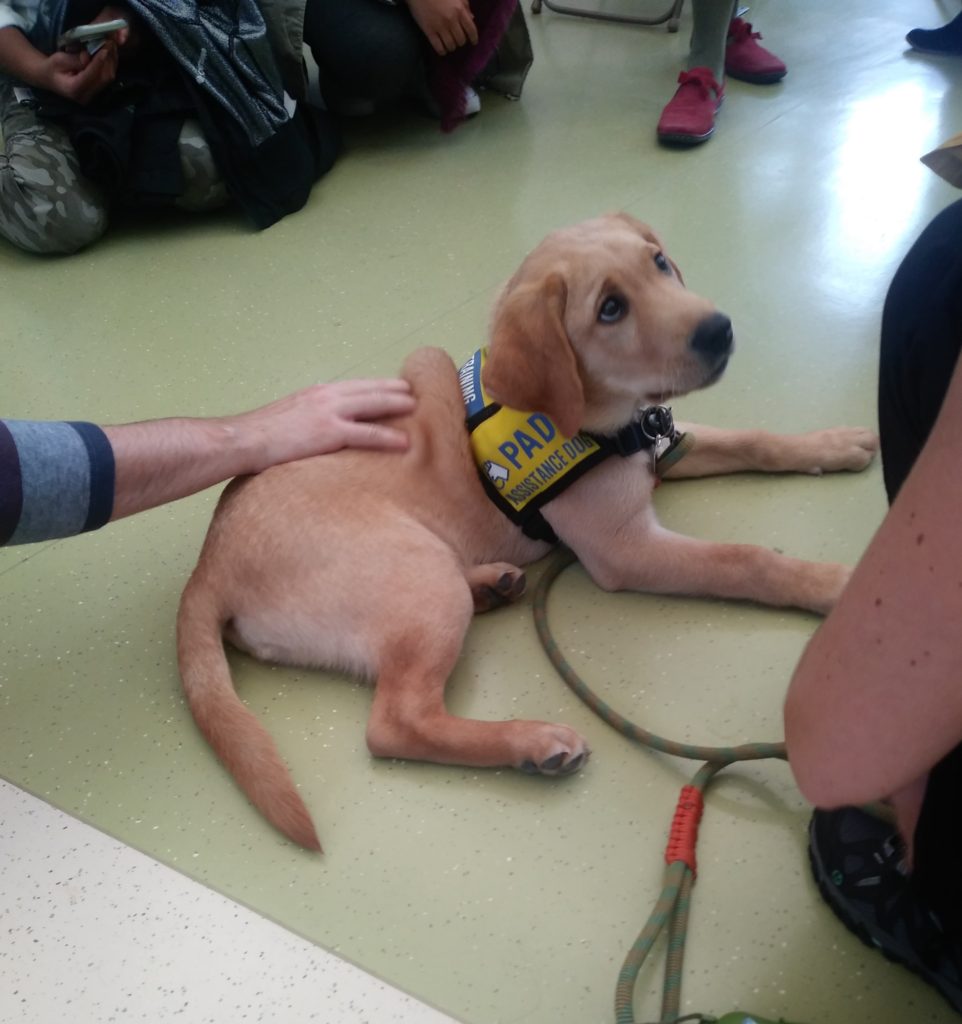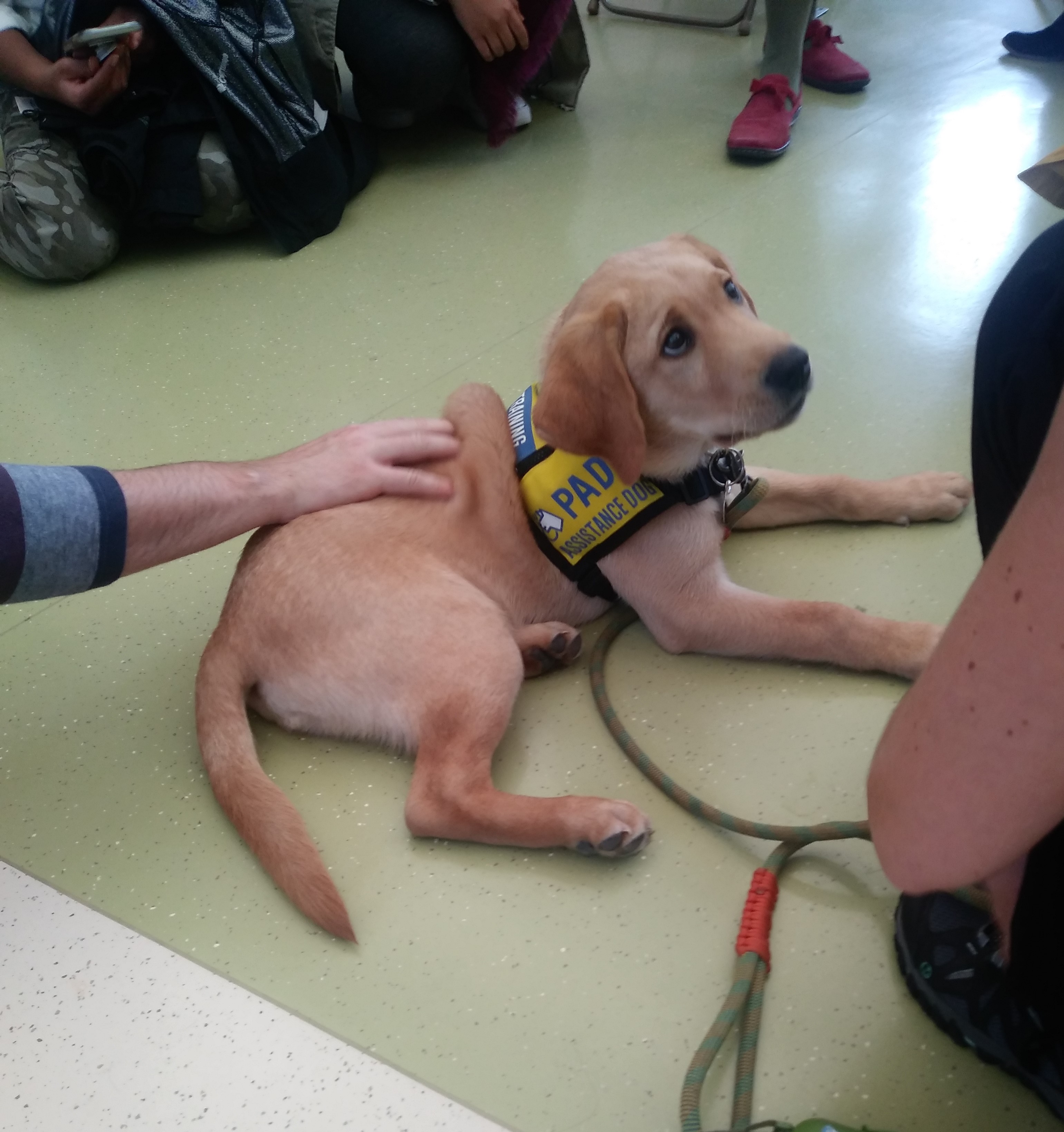
Mental health week at Douglas College hosts therapy dogs
By Jessica Berget, Editor-in-Chief
It’s everyone’s favourite time of the semester; therapy dogs come to Douglas College.
In an effort to relieve stressed out students in the middle of the fall semester, the college hosted an event on October 8 and 10 called “Beyond the Blues” at both the Coquitlam and New Westminster campus, respectively. The event was complete with meditation stations, food and refreshments, drawing, colouring, Lego building stations, and of course, therapy dogs—courtesy of Pacific Assistance Dogs Society (PADS).
At the New Westminster campus, the therapy dogs were definitely the most popular of all the activities with people crowding around the adorable assistant training pups. The youngest was Comox, an excitable 13-week-old yellow lab who has been a Pacific Assistance Dog (PAD) trainee for five weeks. Next there was another yellow lab at 17 months named Miley who has been training for 12 weeks. Finally, a yellow lab named Story is a one-year-old and has been training since she was eight-weeks-old. All are being trained to be an assistance dog for people who live with a physical disability, are deaf, or are heard of hearing.

All three canines at the New West event were Labradors, and this is not by accident. In fact, many assistance dog programs use Labradors or Golden Retrievers according to Assistance Dogs International. This is due to the characteristics they possess. As per an article by Dogster about the best service dog breeds, Labradors make such good helpers because they have a moderate amount of energy. They can do lots of physical activity, but also like to sit quietly.
Another everything dog related website called K9ofmine echoes this fact, and adds that most labs are friendly and good natured. They also tend to make strong bonds with their owners and love having a job to do. It goes on to say that they’re helpful for people who struggle with mobility because their soft mouths are able to grab or manipulate items for their owners. Golden Retrievers on the other hand are better suited for emotional support work, which makes them the best service dog for people suffering with Post Traumatic Stress Disorder (PTSD).
Training to be an assistance dog is not easy feat for these pups. Service dogs go through specific obedience and task-work training for an hour or two a day for 6 to 24 months. They are then placed with their future owners around the age of two. And you thought studying for your midterms was tough, woof.
If you feel you require an assistance dog, you can apply on pads.ca and fill out an expression of interest form to see if you qualify for a PADS dog.



